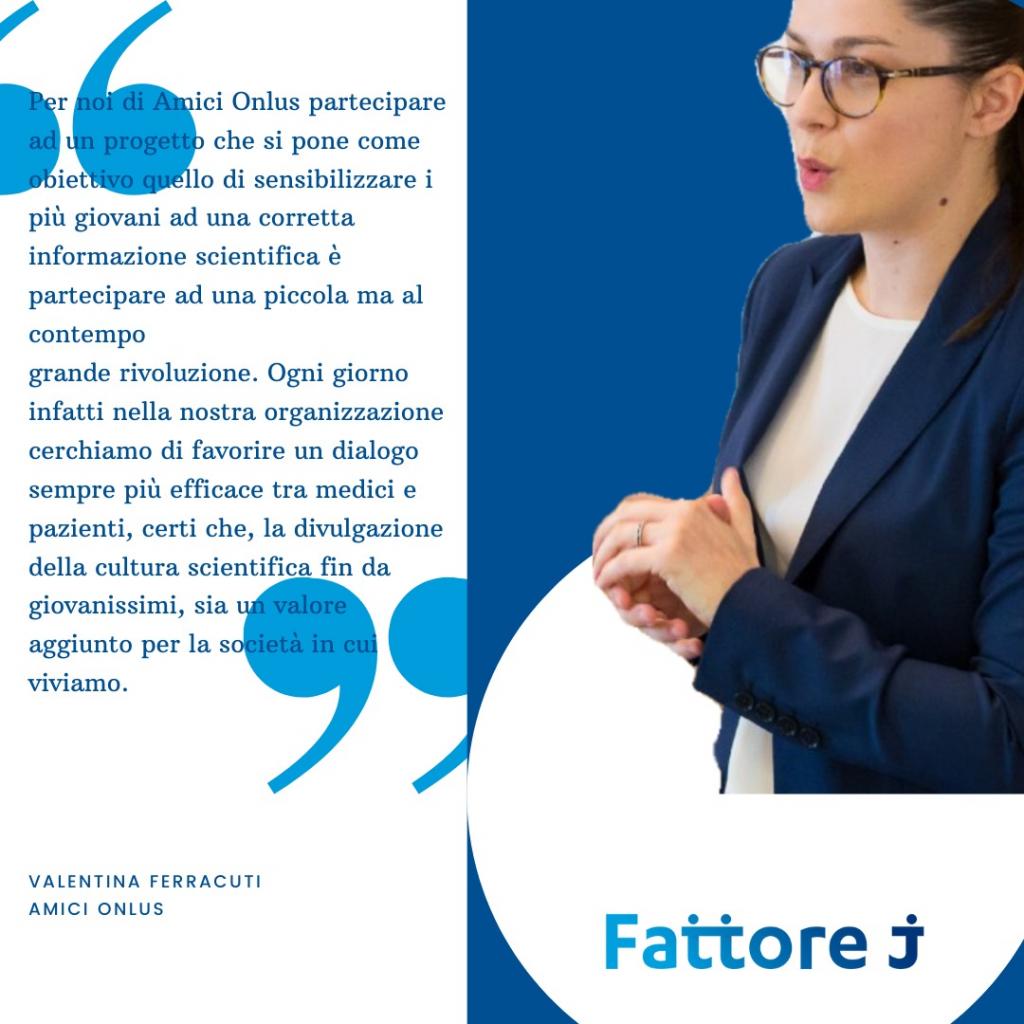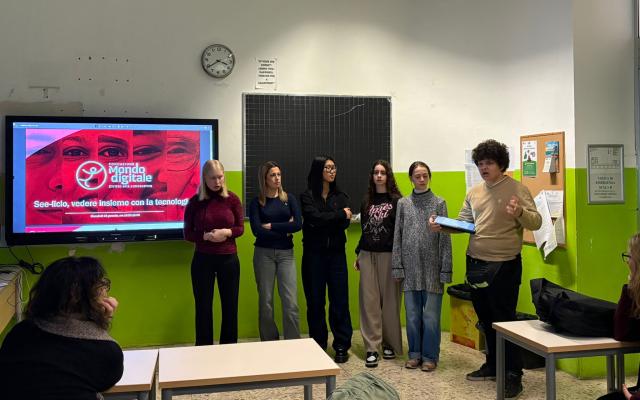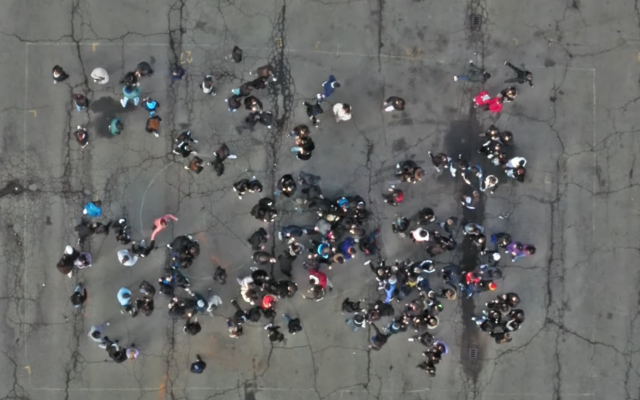Starting on January 14, 2022, experts from the National Association for Chronic Inflammatory Diseases of the Intestine (AMICI) will hold new sessions in schools participting in Project Factor J, developed with the support of Janssen Italia.
 “For our association, participating in a project that aims to raise the awareness of young men and women on correct scientific information means participating in a small, but significant revolution. Every day, in fact, we work to promote a more efficient dialogue between doctors and patients, and we firmly believe that introducing scientific culture to children provides an added value to our society. Every young person involved, in fact, could one day become an aware patient, an informed caregiver providing support, or simply a person who will understand diversity in a correct and positive manner, in a world that will be ever more beautiful and inclusive,” explains Valentina Ferracuti, Deputy Director of AMICI.
“For our association, participating in a project that aims to raise the awareness of young men and women on correct scientific information means participating in a small, but significant revolution. Every day, in fact, we work to promote a more efficient dialogue between doctors and patients, and we firmly believe that introducing scientific culture to children provides an added value to our society. Every young person involved, in fact, could one day become an aware patient, an informed caregiver providing support, or simply a person who will understand diversity in a correct and positive manner, in a world that will be ever more beautiful and inclusive,” explains Valentina Ferracuti, Deputy Director of AMICI.
AMICI experts believe that it is important to “help the young manage their time, freeing them not only from the haste of modern life, but also from wasting their time – time that can be used to enrich themselves and increase their wellbeing. Organising one’s time in relation to the diagnosis of a chronic disease is a very complex, but fundamental phenomenon to avoid that the illness take over one’s life in the long term.”
Enrica Previtali believes that “teaching the value of health is the first important educational process that civil society should know how to impart on youth to grow up healthily. Adolescents express interior conflicts and unease through their bodies that are undergoing transformations that are fundamental to their development. Developing an understanding of their body with a specific and correct language promotes basic medical culture from adolescence. Comprehending the bond between growth and bodily and emotional change helps them face a period in their lives in which it is easy to feel vulnerable and influenced by bad habits. Accompanying them in their development and helping them understand themselves will reinforce their identity and help them to adopt health habits.”
So, how has work with patients and their families changed over time? How do Gen Zs react to illness? With the same fears and fragilities? “We intercepted their need to meet, understand, speak and understand illness, to be able to explain it,” replies Valentina Ferracuti. “We have reinforced our Young Group and divided it into workgroups to generate independent dialogue with new and old friends with whom to share the experience of illness, but especially to provide further information on issues that will increase their understanding of health and their bodies. Feeling that they belong to a group bolsters their identity and commits them to generate ideas that will help others, as well as themselves.”
An adjective or expression to define the AMICI course with Factor J?
"The different do not exist", concludes Valentina Ferracuti.

Project Factor J , promoted by the Fondazione Mondo Digitale with Janssen Italia, is the first curriculum to integrate empathy and the development of emotional intelligence in traditional Italian school curricula and educate young men and women on health and prevention issues, raising the awareness on the respect due to those living in conditions of fragility and consolidating trust in science, an important social operation to stimulate cultural change and mentality, starting from the new generations.



